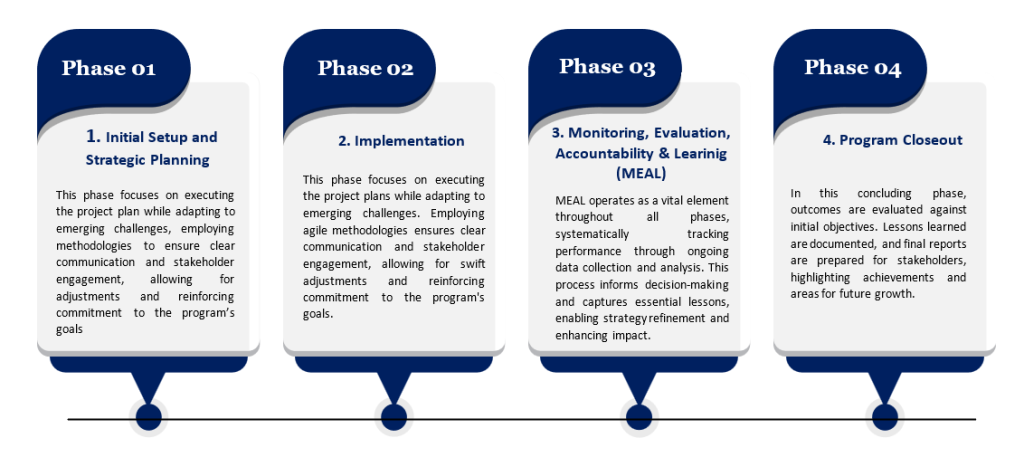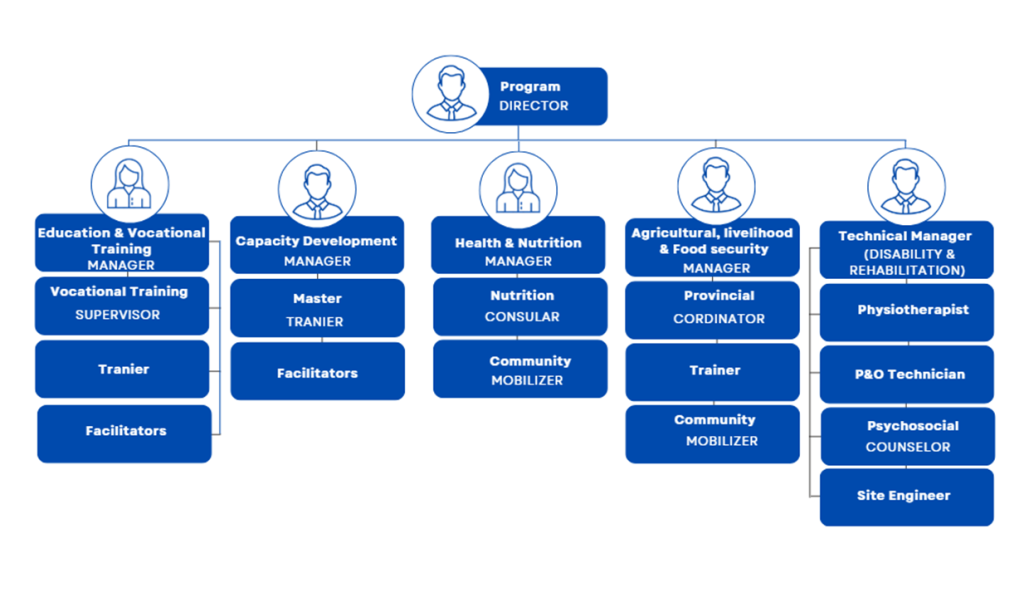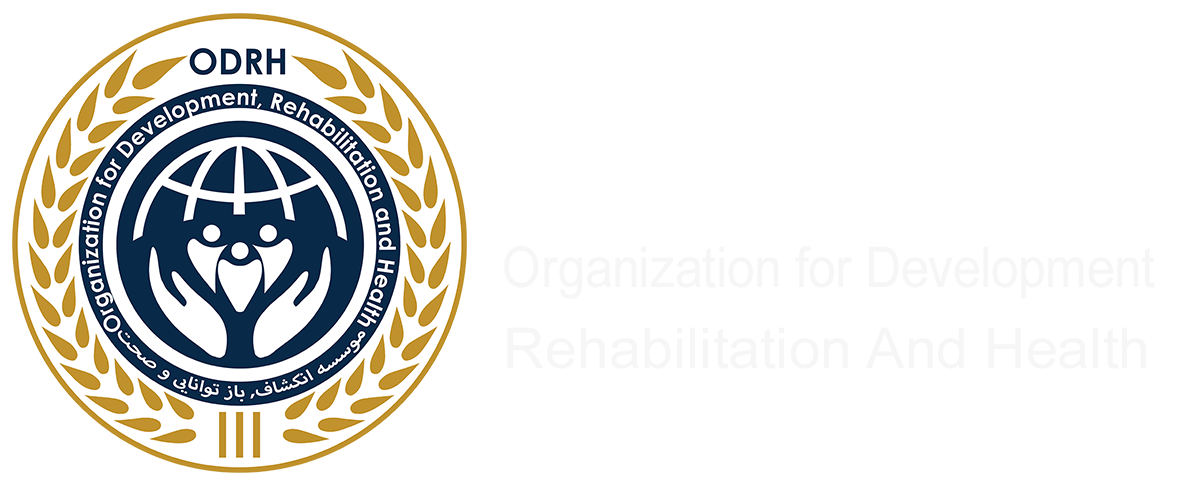Organization for Development Rehabilitation and Health




Introduction
The Organization for Development, Rehabilitation and Health (ODRH) maintains a transparent, inclusive, and participatory operational framework that ensures all stakeholders — including staff, partners, donors, and beneficiaries — have clear visibility into its processes, programs, and impact.
ODRH’s operational activities are guided by its strategic plan, which is translated into actionable annual work plans across all departments. These operations span diverse thematic areas such as health, education, vocational training, disability and rehabilitation, food security and livelihoods, capacity development, and protection. These sectors are managed by qualified professionals who bring technical expertise and local context to program implementation. Through regular coordination meetings, planning sessions, monitoring, and evaluations, the internal team is continuously engaged in the execution and refinement of ODRH’s initiatives.
Strategic Framework Summary
At the Organization for Development, Rehabilitation and Health (ODRH) (ODRH), we recognize that effective program management is essential for fulfilling our mission and achieving impactful outcomes. Our framework defines key phases for managing program lifecycles, promoting collaboration, and adherence to best practices. We document essential processes for each phase to ensure consistency and efficiency while monitoring progress and assessing outcomes. Recognizing inherent constraints is vital, as it enables teams to manage risks and make informed decisions within the limits of time, resources, and scope.
Phases of Program Development
The program development lifecycle of the Organization for Development, Rehabilitation, and Health (ODRH) is delineated into four distinct stages, with Monitoring and Evaluation (M&E) integrated throughout each phase. This systematic approach not only facilitates the attainment of program objectives but also promotes continuous improvement and adaptive learning throughout the process.

Definition of Each Phase
Program phases delineate specific segments within the program lifecycle, emphasizing the evolution of focus areas. These phases typically require collaboration with various partners or stakeholders, each bringing unique competencies to the table. Consequently, the personnel tasked with program management may shift from one phase to another.
Program Setup and Design Phase:
During this phase, ODRH will gather data through a needs assessment, establish clear objectives, and engage stakeholders. Also, a comprehensive resource allocation and work plan will be created, detailing specific roles and responsibilities. The Monitoring, Evaluation, Accountability, and Learning (MEAL) framework clarifies team roles, enhancing accountability in data collection and reporting while ensuring the program meets the target population's needs.
Planning and Implementation Phase:
In this phase, a Systematic data collection of activities, outputs, and outcomes characterizes this phase, providing real-time insights into the program's progress. Any potential challenges are documented for analysis. MEAL serves as a guiding framework, ensuring adherence to project intentions during implementation.
Monitoring, Evaluation, Accountability & Learning (MEAL):
Effective project management is essential for successful program delivery. ODRH understands that these phases of project management, alongside the MEAL lifecycle, can significantly enhance outcomes. The four phases and corresponding MEAL steps create a cohesive framework for efficient management at ODRH.
Monitoring, Evaluation, Accountability & Learning (MEAL)

Program Completion & Documentation Phase:
This phase involves completing project activities, evaluating outcomes against Key Performance Indicators (KPIs), documenting lessons learned, and collecting stakeholder feedback for ongoing improvement.
Structure of the Department

